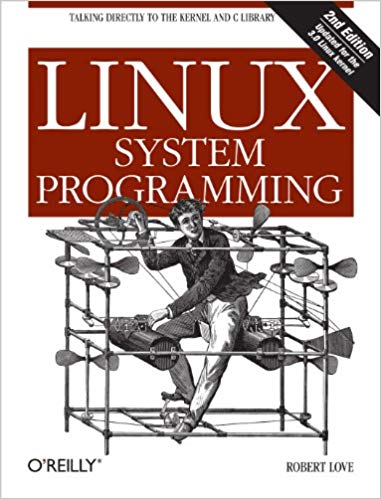Linux System Programming by Robert Love [Chapters 5-8]

Chapter 5 - Processes
- A binary is a compiled blob of code
A process is a running program, includes
- the binary image
- virtualized memory instance
- kernel resources like open files
- security context like user
- one or more threads
- a thread has a virtualized processor, stack, registers and instruction pointer
- in a single threaded process, the process IS the thread
- all threads share the same memory
- A process has a PID that's guaranteed to be unique at a given moment
- The idle process has PID 0
- The first process is called the init process (pid 1)
The kernel tries the following init programs:
- /sbin/init
- /etc/init
- /bin/init
- /bin/sh
- The init process handles the remainder of the boot process, launching services and a login program
- The kernel keeps monotinically increasing the PID till it wraps around
- Every process (child) is spawned from another process (parent)
- Each process has a ppid(parent pid)
- Each process inherits the parent's UID and GID
- Processes belong to process groups. Normally children have the same group as the parent
- when you do a
ls | lessbothlsandlesswill have the same process group - to get your own pid:
#include <sys/types.h>
#include <unistd.h>
// returns the process ID of the invoking process
pid_t getpid (void);
// returns the process ID of the invoking process’s parent
pid_t getppid (void);
// Neither call will return an error
printf ("My pid=%jd\n", (intmax_t) getpid ());
printf ("Parent's pid=%jd\n", (intmax_t) getppid ());
// intmax_t is guaranteed to be larger than any int on the system
Running processes
forkcreates a near duplicate of the parent processexecfamily of calls loads a binary into memory, replacing the previous program, and executes it- to execute a new program, you have to fist
fork, thenexec
#include <unistd.h>
int ret;
ret = execl ("/bin/vi", "vi", "/home/kidd/hooks.txt", NULL);
// Arguments must be NULL terminated
if (ret == −1)
perror ("execl");
- normally, execl does not return since there's nothing to return to
- it clears out most attributes of the calling process including signals and locks
- it keeps the open file ids. They should be either manually closed or using
fcntl In addition, we have
execlp,execle,execv,execvp,execvelmeans list,vmean array (variadic vs array args)emeans it takes a new environmentpmeans it seaches the PATH for the filename
#include <unistd.h>
#include <sys/types.h>
#include <stdio.h>
int main() {
int pid = fork();
if(pid == -1) {
perror("fork"); return 1;
}
if(pid == 0) { //child
int ret;
ret = execlp("ls", "ls", NULL);
if (ret == -1) {
perror("exec"); return 1;
}
} else {
printf("Parent\n");
}
}